”The true test of a man'
s honor is his loyalty to his country“
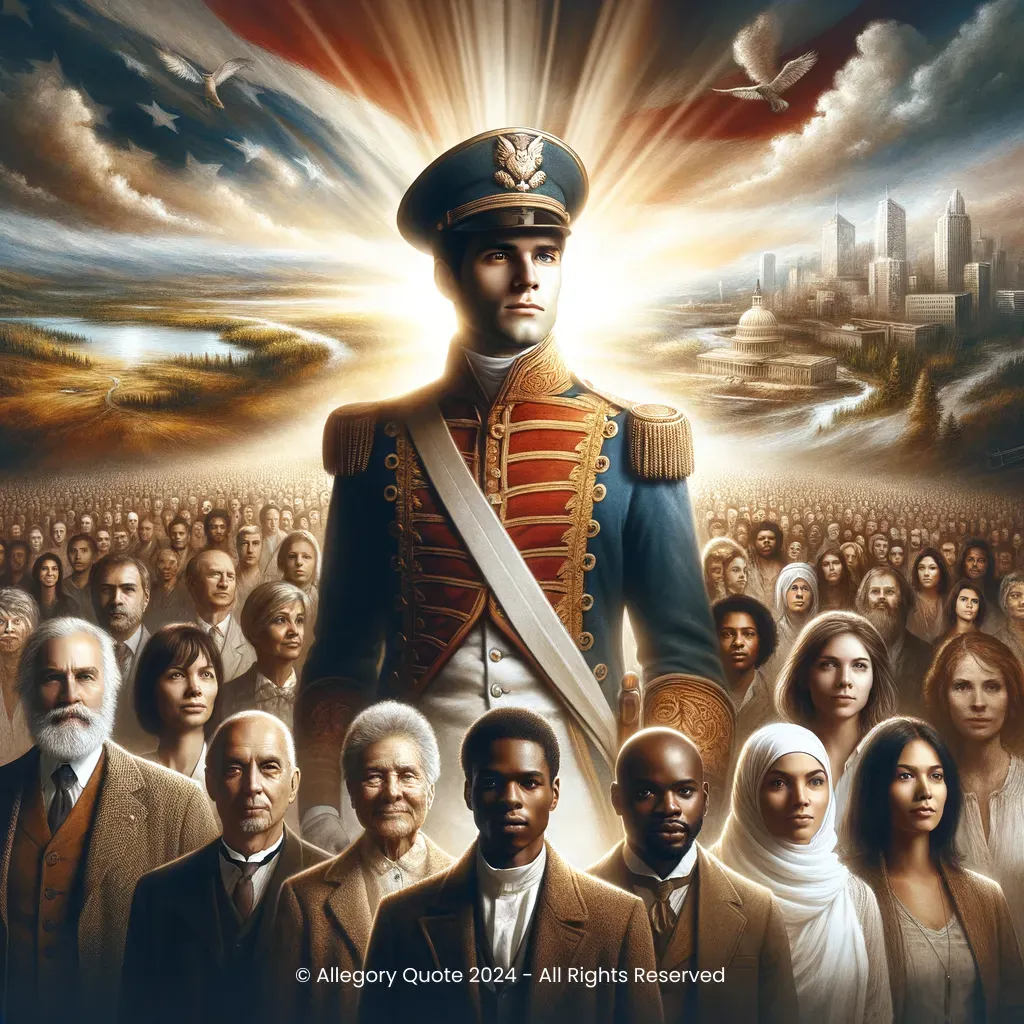
0
0
0
0
- Meaning
- This phrase highlights the profound connection between personal honor and patriotism. It suggests that true honor in an individual is measured not merely by personal virtues but also by their loyalty and service to their nation. This implies that a person's integrity and moral fiber are best demonstrated through their commitment to the collective good and welfare of their country, emphasizing a sense of duty beyond personal interests.
- Allegory
- The noble figure in historical military attire represents the embodiment of honor and loyalty to one's country, inspired by Marquis de Lafayette's legacy. Their resolute gaze and confident posture symbolize steadfast commitment and leadership. The diverse group of citizens signifies the collective unity and shared purpose of the nation, reflecting the phrase's emphasis on communal loyalty. The iconic landmarks and flourishing landscapes in the background highlight national pride and the rewards of a prosperous, loyal society. The light beams from the horizon symbolize hope and a brighter future, encouraging viewers to reflect on civic duty and the importance of contributing to the common good.
- Applicability
- This phrase can inspire individuals to prioritize their civic duties and contribute to their communities and nations. It encourages active participation in societal and political processes, fostering a culture of responsible citizenship. In everyday life, it can be a motivator to uphold ethical standards and commitments, emphasizing the importance of contributing to the common good.
- Impact
- This phrase has had a lasting impact in contexts where patriotism and national loyalty are valued. It has been invoked in discussions about military service, political leadership, and civic responsibilities, serving as a moral touchstone for individuals seeking to align personal honor with national commitment. Additionally, it resonates during times of national crisis, often cited to rally citizens towards unity and collective action.
- Historical Context
- The historical context of this phrase lies within the Enlightenment era, during which the concepts of liberty, individual rights, and national sovereignty garnered significant attention. Lafayette, a prominent Enlightenment figure, played crucial roles in the American Revolutionary War and the French Revolution, reflecting his steadfast commitment to these ideals.
- Criticisms
- Critics might argue that the phrase overly glorifies nationalism, which can sometimes lead to exclusionary or aggressive actions towards other nations or groups. Others might contest the notion that personal honor should be so closely tied to national allegiance, advocating instead for a more universal approach to honor that transcends borders and focuses on global morality.
- Variations
- Different cultures may have variations of this phrase that emphasize loyalty to one's community, clan, tribe, or other social structures. For example, Japanese culture has a concept of "giri," which underscores duty and obligation, often to one's family, community, or society at large, reflecting similar values of loyalty and honor.
-

Success is not final, failure is not fatal: It is the courage to continue that counts.
-
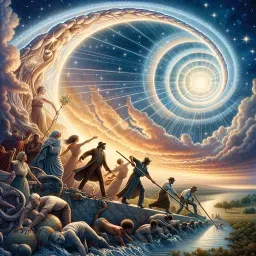
The arc of the moral universe is long, but it bends toward justice.
-

The public service is a public trust.
-

A good reputation is more valuable than money.
-
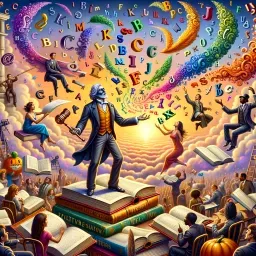
I don't give a damn for a man that can only spell a word one way.
-

You are entitled to your own opinions, but not your own facts.
-
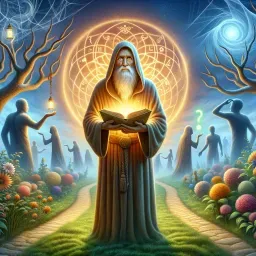
If you tell the truth, you don't have to remember anything.
-

Blood is thicker than water, but it can still be contaminated.
-

Even the darkest night will end, and the sun will rise.
-
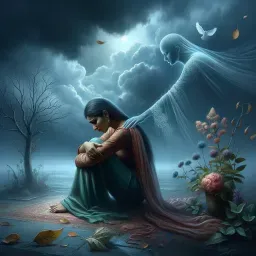
Tears are the silent language of grief.
-

I have not yet begun to fight!
-

If you would be loved, love, and be lovable.
No Comments